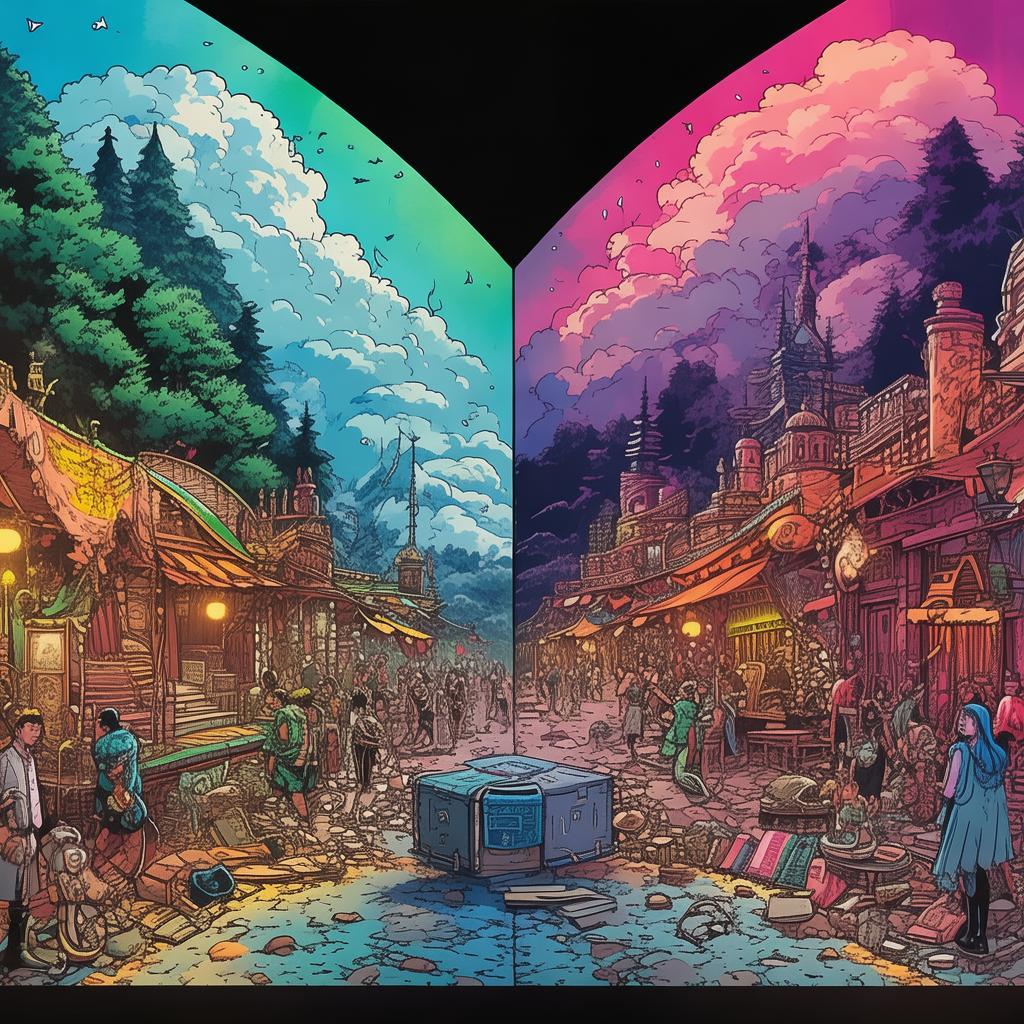The Newton's Apple: A Hidden Legacy
In the quaint town of Grantham, England, young Thomas Wren sat hunched over his desk, the glow of an oil lamp casting a warm, flickering light across his face. His fingers danced across the parchment, etching out the final lines of his latest alchemical experiment. The air was thick with the scent of sulfur and the promise of discovery.
Thomas had always been fascinated by the works of Isaac Newton, the man who had uncovered the laws of gravity and the nature of light. But it was Newton's lesser-known pursuits in alchemy that truly captivated him. Alchemy, the ancient art of transforming base metals into gold and the elixir of life, was a pursuit that had eluded many a scholar. Thomas was determined to unlock its secrets.
One evening, as he was cleaning his lab, Thomas stumbled upon an old, dusty book tucked away in a corner. It was a journal, bound in leather and filled with Newton's own handwriting. The pages were filled with notes on his experiments, sketches of alchemical symbols, and cryptic messages. One particular entry caught his eye:
"Secrets of the gravity apple. The true power lies not in the fruit, but in the knowledge it holds."

Thomas' heart raced. The "gravity apple" was a legendary object, said to be the very apple that Newton had used to discover the law of gravity. The journal suggested that Newton had discovered something far more profound than just the law of gravity—it was a key to alchemy itself.
Determined to uncover the truth, Thomas set out on a journey to find the gravity apple. His first stop was the University of Cambridge, where Newton had once studied. There, he met with the university's archivist, who was skeptical but intrigued by Thomas' quest.
"Isaac Newton was a man of many secrets," the archivist said, handing Thomas a key. "This key opens a box in the library's vault. Inside, you may find what you seek."
Thomas took the key and hurried to the library's vault. Inside, he found a small, ornate box. He opened it to reveal a piece of fruit, no larger than a plum, encased in glass. It was the gravity apple.
As Thomas held the apple, he felt a strange connection to Newton. He knew that this was more than just a piece of fruit—it was a key to unlocking the secrets of the universe.
With the gravity apple in hand, Thomas returned to his lab. He began to experiment, combining the principles of alchemy with Newton's laws of motion and gravity. Days turned into weeks, and weeks into months. Thomas became obsessed with his work, neglecting his studies and his social life.
One evening, as Thomas was mixing chemicals in a cauldron, he felt a sudden jolt of energy. The air around him seemed to hum with power. He looked down to see the gravity apple glowing with an otherworldly light. In that moment, he realized that he had done it. He had unlocked the secret of gravity.
The experiment worked. The gravity apple had allowed him to harness the power of gravity, transforming it into a source of energy. But with great power came great responsibility. Thomas knew that he had to use this knowledge wisely.
He decided to use his newfound power to help others. He built a machine that could harness gravity to generate clean, renewable energy. The machine was a marvel of engineering, and it quickly became the talk of the town.
But Thomas' success did not go unnoticed. A rival alchemist, who had always sought to steal his secrets, began to plot against him. The rival alchemist was determined to use the gravity apple for his own gain, no matter the cost.
In a climactic showdown, Thomas and the rival alchemist faced off. The air was thick with tension as they exchanged blows and spells. In the end, Thomas emerged victorious, using his knowledge of gravity to defeat his opponent.
With the rival alchemist defeated, Thomas returned to his lab, his heart filled with a sense of accomplishment. He had not only uncovered the secrets of gravity but had also used his power for the greater good.
As he looked at the gravity apple, he realized that Newton's legacy was more than just the law of gravity—it was a legacy of knowledge, discovery, and the pursuit of truth. And with that, Thomas knew that he was ready to continue the journey, carrying on Newton's legacy for generations to come.
✨ Original Statement ✨
All articles published on this website (including but not limited to text, images, videos, and other content) are original or authorized for reposting and are protected by relevant laws. Without the explicit written permission of this website, no individual or organization may copy, modify, repost, or use the content for commercial purposes.
If you need to quote or cooperate, please contact this site for authorization. We reserve the right to pursue legal responsibility for any unauthorized use.
Hereby declared.
![The Dreamweaver's Tale: The Life of [Name]](http://img.bluepurple.cn/b/故事/91/The-Dreamweavers-Tale-The-Life-of-Name-mBe.png)








